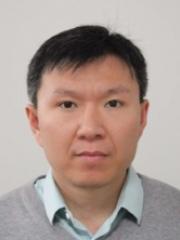Associate Professor Zhongwei Chen

Researcher biography
Conduct interdisciplinary research to tackle technical challenges associated with the efficient and responsible extraction of geo-energy and geo-resources. Three main focuses of my research interests are:
1. Mining geomechanics for high-stress and high-temperature mining conditions.
- It covers ground support design, excavation stability analysis, pillar stability, mine seismicity, strata movement and surface subsidence, and mine paste fill optimisation.
- My research team has also conducted extensive work on (i) using Thin Spray-On Liners (TSLs) to replace shotcrete, (ii) developing new experimental capabilities in assessing grout durability in extremely acidic and hot conditions (>140°C ), and (iii) evaluating rock sensitivity to different weathering conditions (e.g., wet-dry cycles and humidity effect).
2. Reservoir geomechanics, targeting key technical challenges associated with unconventional gas recovery.
- It includes borehole stability, permeability evolution, reservoir petrophysical properties characterisation, multiphase flow in fractured porous media with challenges associated with natural gas extraction, carbon geological sequestration, underground hydrogen storage, and energy storage in depleted reservoirs, and
- Over the years, my group has developed advanced multiscale multiphase and multiphysics computational modelling capabilities
3. Machine Learning Applications in Mining and Natural Gas Fields
- Explore the diverse applications of machine learning and deep learning algorithms in geomaterial strength analysis (sedimentary rock in particular), geotechnical characterization (e.g., automatic calculation of rock fracture characteristics, and roadway stability assessment of different geological conditions), and subsurface characterization. By harnessing the power of data-driven approaches, the research group aims to enhance the accuracy and efficiency of rock mechanics analysis, enabling more effective decision-making in engineering projects.
Teaching Courses:
- Geotechnical Design and Implementation (Open Pit) (MINE6121) (Since 2025)
- Applied Mining Geomechanics (MINE6112) (Since 2023)
- Mine Geotechnical Engineering (MINE4120) (2013- 2023)
- Coal Mine Strata Control (MINE4128) (2013- 2023)
Resources Geomechanics Lab (NATA accredited between 2023-2025) with leading experimental capabilities in:
1. A suite of rock mechanics testing capabilities:
- Mechanical properties (e.g., modulus, Poisson's ratio, density)
- Rock strengths (e.g., UCS, triaxial strength, fracture shear strength, direct shear, punch shear, direct tensile strength, Brazilian Tensile Strength, and bond adhesion force), and
- Rock petrophysical properties (e.g., porosity, permeability/conductivity at different high confining stresses, fracture compressibility, slake durability, and rock weathering etc)
2. Rock dynamic responses to different stress conditions (transient condition) using non-destructive methods (e.g., Acoustic Emission and Ultrasonic Detection for different applications at different scales)
3. Characterization of fluid flow (water or gas) in fractured porous media under a high-stress environment (up to 10,000 psi)
4. Quantifying the evolution of the intrinsic and relative permeability of extremely tight reservoirs (e.g., coals, shales, and tight sandstones) to gas adsorption/desorption as well as the changes of contact angle with varying reservoir pressure
5. Visualising two-phase flow using microfluidics: discontinuous flow vs continuous flow
6. Quantifying the impact of proppant embedment and reservoir stress on shale permeability evolution
7. Gas isotherm and directional sorption-induced strain measurements for different absorbing reservoir rocks
8. Mine paste rheological property measurements at various shearing controls, e.g., constant shear rate, varying shearing rate, ramping controls etc.
